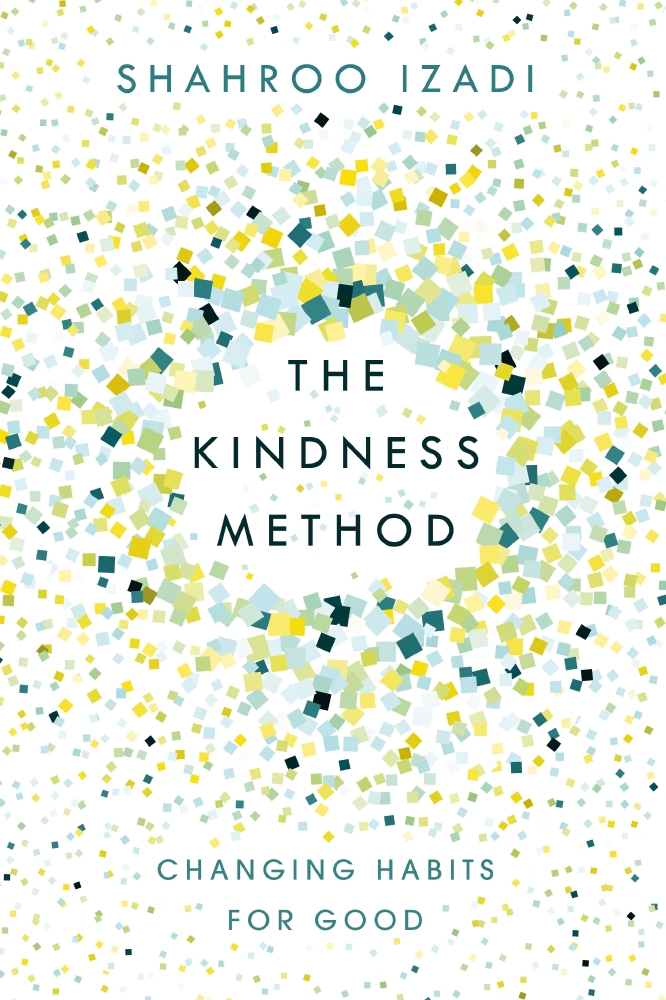Consider your definition of kindness
When it comes to changing unwanted habits, consider whether you associate being kind to yourself with making choices you’ll be happy you made in a week’s or a month’s time. Very often we allow the presumption that we need instant gratification or relief from boredom, stress or worry to hold us back from achieving more ambitious goals that may require some short-term discomfort, but ultimately will give us a greater, more lasting sense of wellbeing in the long-term.

Shahroo Izadi
Treat yourself as you’d treat someone you love
The next time you act in a way that you’re not happy with, beit locking your keys in the car or saying something in a heated moment that you later regret, try speaking to yourself as you would speak to a loved one. Presumably if they’d done the same thing you wouldn’t suggest that they take ages to forgive themselves or spend all day beating themselves up about it.
This applies to adopting kinder day-to-day behaviours too. For example if you want to eat more healthily and feel fitter and more energetic, spend a day treating your body as you’d want someone you love to treat theirs. You may well find yourself making healthier choices all day, from deciding to take the stairs instead of the lift, to making sure you drink water and get enough fresh air. This approach can also be useful for those who are trying to smoke or drink less. This exercise can bring to our attention that we may be behaving as though our own bodies and minds are as worthy of kindness as those of others.
Notice your strengths
Over the course of the day, on your phone or in a notepad, get into the habit of quickly noting down instances when you’ve felt proud of yourself. This can be anything from a professional achievement at work to realizing you’ve handling a difficult situation in a way you’re happier with than you would have been a year ago. Having a growing collection of ways you’ve proven to yourself that you’re capable and full of strengths and resources is a great way to feel more resilient and speak to yourself more kindly and fairly in those moments when you’re faced with self-doubt, criticism or negative feedback. As the list grows longer, it becomes something of a script you use to challenge cruel assumptions and limiting core beliefs you may have about yourself and how capable you are.
Take your life off hold
Often we behave as though we’re waiting to have achieved a particular goal before we will be truly worthy of being kinder to ourselves. We may think ‘I’ll celebrate myself once I’ve got that promotion’ or I’ll wear that when I’ve lost a few lbs.’ Your worthiness to enjoy your life as it is today is not conditional. Challenge your assumptions of what you can or can't do and start treating yourself as though you've already 'arrived.'
Adopt ‘joy habits’
Start making a concerted effort to integrate little habits into your life that you want to engage in for no reason other than pure joy into your day-to-day life. Protect these little plans as you'd protect a plan you made with someone else. They can be anything from deciding to sit on a bench to read for 10 minutes en route to work to deciding to take back up practicing a musical instrument. Start to notice opportunities to reinforce that you’re worthy of enjoying your life as much as possible every single day.
Start the day tech-free
Many of us have got into the habit of looking at our phones to check emails, social media and the news before we’ve even got out of bed in the morning. This can leave us feeling overwhelmed and get our day started on a more urgent, less mindful note. Clients often tell me that viewing certain kinds images on Instagram or being bombarded with Whatsapp notifications first thing in the morning can set them up to make less than kind decisions about how they speak to and treat themselves for the rest of the day. We are far better placed to behave in ways we’re proud of towards ourselves and others when we feel we are on the best footing emotionally and physically. With this in mind, it can help to try not looking at your phone until you’ve perhaps got out of bed, had a shower and eaten breakfast.


